50-Minute Classroom: Shake Up Your Training, Mix Up Your Style
 On a recent trip to Hawaii, Chef Weiner had an epiphany: Teaching our students how to cook isn’t good enough. To better prepare them for the real world, we also need to introduce students to the different formats of serving. Here are 10 effective ideas that fit nicely within a shorter class timeframe.
On a recent trip to Hawaii, Chef Weiner had an epiphany: Teaching our students how to cook isn’t good enough. To better prepare them for the real world, we also need to introduce students to the different formats of serving. Here are 10 effective ideas that fit nicely within a shorter class timeframe.
By Adam Weiner, CFSE
One of the beauties of being active with CAFÉ is that you get to meet fellow culinary instructors, culinarians, students and chefs from around the country. I joke around that every time I return from the Leadership Conference I have to buy a larger business-card holder.
(Speaking of the Leadership Conference in June, I will be giving a presentation entitled “Teaching the Basic Cooking Principles in 50 Minutes.” It is designed specifically for high-school teachers. I hope you can attend, because I would love to have participation from a broad range of instructors.)
There is another way that being active in CAFÉ expands your network: You use CAFÉ to find others in the field in places where you will be travelling. Several months ago I mentioned to Mary Petersen, the president of CAFÉ, that my wife and I were going to Kauai. She introduced us via e-mail to Martina Hilldorfer, culinary-program coordinator and chef at the Culinary Institute of the Pacific at the Kauai Community College.

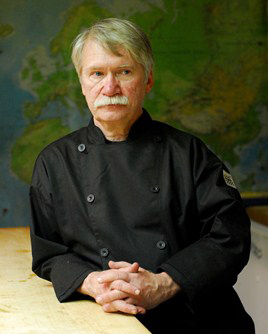 As their career paths become clear, students will inevitably emulate what they’ve experienced in our classrooms and kitchens. Thus, our responsibility is great. Which attitudes, aptitudes and beliefs do we want graduates to portray throughout their careers as a result of our actions?
As their career paths become clear, students will inevitably emulate what they’ve experienced in our classrooms and kitchens. Thus, our responsibility is great. Which attitudes, aptitudes and beliefs do we want graduates to portray throughout their careers as a result of our actions? Here’s a valuable education-resources fact sheet to help educators effectively teach seafood sustainability.
Here’s a valuable education-resources fact sheet to help educators effectively teach seafood sustainability.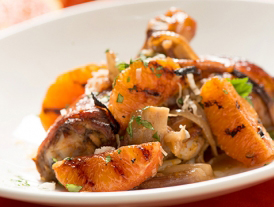 Top chefs know that exceptional produce is where flavor begins. More produce choices equates to more chances to shine. That’s why citrus is something to celebrate.
Top chefs know that exceptional produce is where flavor begins. More produce choices equates to more chances to shine. That’s why citrus is something to celebrate.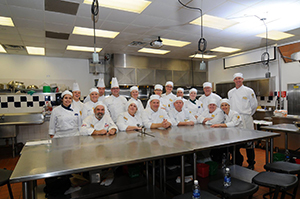 To further their understanding of the needs and expectations of chefs in the foodservice industry and expand their culinary knowledge and skills, the Emmi Roth Foodservice sales team participated in a culinary training program at Johnson & Wales University in Charlotte, N.C., January 19-23.
To further their understanding of the needs and expectations of chefs in the foodservice industry and expand their culinary knowledge and skills, the Emmi Roth Foodservice sales team participated in a culinary training program at Johnson & Wales University in Charlotte, N.C., January 19-23.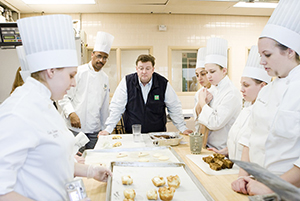 The Culinary Institute of America is naming the high-volume-production teaching kitchen in its new Student Commons at the Hyde Park, N.Y., campus after Jones Dairy Farm in recognition of the company’s ongoing support of the college.
The Culinary Institute of America is naming the high-volume-production teaching kitchen in its new Student Commons at the Hyde Park, N.Y., campus after Jones Dairy Farm in recognition of the company’s ongoing support of the college. Joe Perdue, CCM, CHE, the club industry’s leading hospitality educator, died in Atlanta on Jan. 19, 2015, after a long illness. He was 64.
Joe Perdue, CCM, CHE, the club industry’s leading hospitality educator, died in Atlanta on Jan. 19, 2015, after a long illness. He was 64.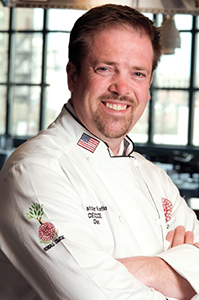 The deadline to submit your entry in the 7th-annual CAFÉ/Kendall College Green Award program is April 1.
The deadline to submit your entry in the 7th-annual CAFÉ/Kendall College Green Award program is April 1.